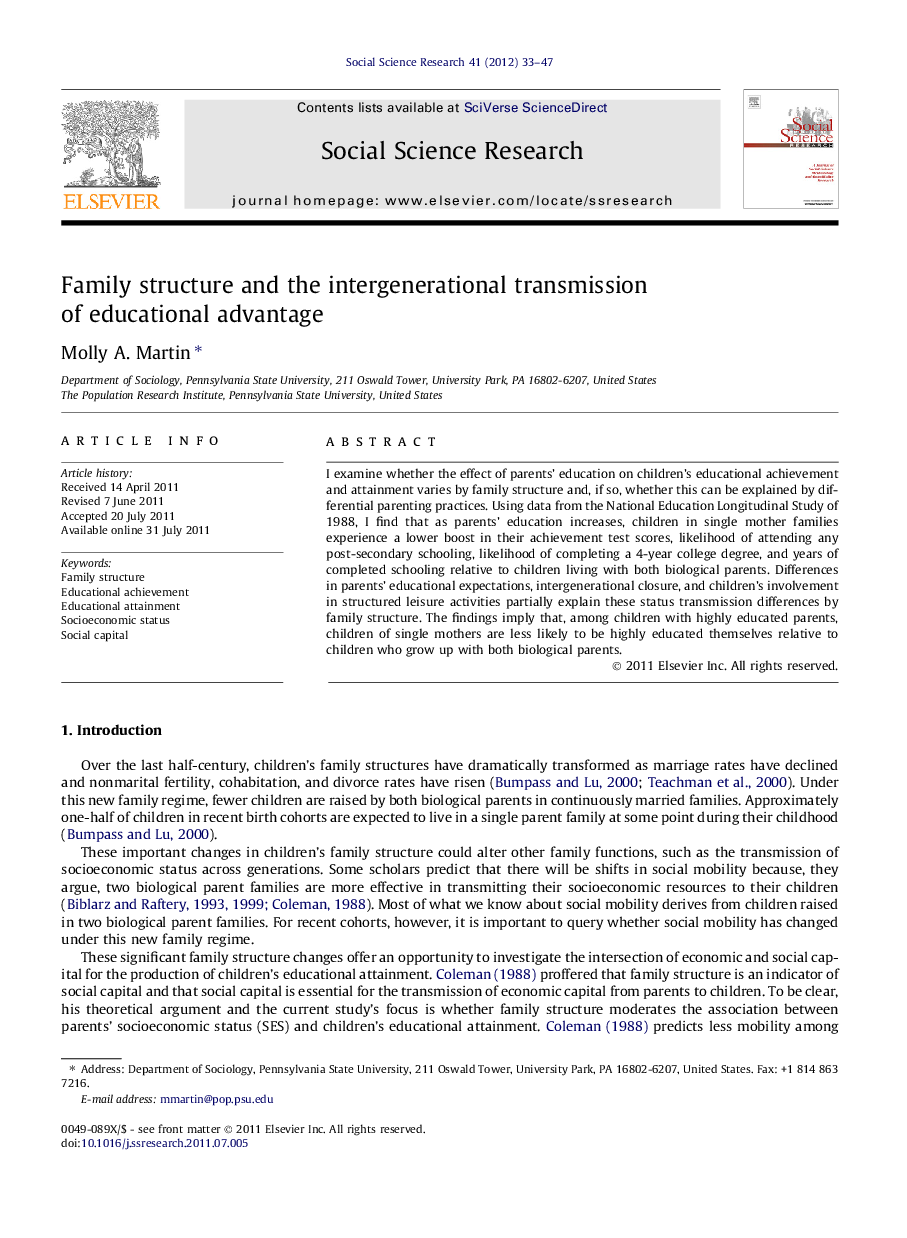| Article ID | Journal | Published Year | Pages | File Type |
|---|---|---|---|---|
| 956062 | Social Science Research | 2012 | 15 Pages |
I examine whether the effect of parents’ education on children’s educational achievement and attainment varies by family structure and, if so, whether this can be explained by differential parenting practices. Using data from the National Education Longitudinal Study of 1988, I find that as parents’ education increases, children in single mother families experience a lower boost in their achievement test scores, likelihood of attending any post-secondary schooling, likelihood of completing a 4-year college degree, and years of completed schooling relative to children living with both biological parents. Differences in parents’ educational expectations, intergenerational closure, and children’s involvement in structured leisure activities partially explain these status transmission differences by family structure. The findings imply that, among children with highly educated parents, children of single mothers are less likely to be highly educated themselves relative to children who grow up with both biological parents.
► Does the intergenerational association of education vary by family structure? ► Do differences in parenting practices explain this moderation? ► Uses the National Education Longitudinal Study: 1988–2000. ► The intergenerational association of education is lower in single mother families. ► Key are differences in parent’s educational expectations, intergenerational closure and children’s leisure activities.
